
Professional Master's Degree
Fridays (afternoon/evening) and Saturdays (morning/afternoon)
August/2021
600 hours

From an interdisciplinary vision of Economics, the Professional Master's Degree in Economics, Public Policies and Development at IDP (MPE-IDP) is organized to meet the demands of the different profiles of public servants and other professionals who work directly or indirectly with policies public and government management. The MPE-IDP is a stricto sensu master's degree, approved and recommended by CAPES, which privileges the application of theoretical knowledge to solving problems related to the formulation, monitoring and evaluation of public policies and government management.
Do you want to know in detail the subjects
of the PROFESSIONAL MASTERS DEVELOPMENT in Dev MPE?
Click and meet the Coordinators and Team of the Professional Master's in Economics at IDP.
The student body of the IDP Professional Master's Program in Economics is predominantly made up of public servants and professionals from the private sector, who aim to deal with the growing complexity of the sphere of public policies and government management. Click and meet our current student body.
List of Students
The Program's training process, strongly influenced by an interdisciplinary perspective, includes disciplines that relate specific knowledge in the area of Economics with other areas, such as Political Science, Public Administration and Law. Click and see the course syllabus.
In the period between its foundation on December 19 and December 2020, the IDP Professional Master's Program in Economics awarded 20 master's degrees, with work covering the three Powers of the Republic and the three levels of the federation. Browse and learn more about the works defended, published articles and the trajectory of our graduates!
The selection process for the professional master's degree in Dev MPE at IDP has monthly assessments. This process will consist of three phases or until all vacancies are filled.
To register for the selection process, you will need to prepare your CV and cover letter. In your CV, prepare the main highlights of your academic and professional career. In your cover letter, you must describe and analyze the main events in your academic and professional career, specifically those that are most significant in relation to your objectives when studying the Master's degree. In the e-book "Guide to creating your CV and cover letter" we give a step-by-step guide on how to create these documents.
After preparing your cover letter and your CV, you are ready to enroll in the selection process. To complete your registration, you must attach the documents and pay the fee.
After completing your application (attaching the requested documents and paying the fee), our academic team will carry out an assessment of your academic and professional trajectory. Candidates approved in this stage will be called for an oral assessment. Oral assessments take place monthly and our sales team will contact you to schedule the assessment.
SEMESTERS
IN-PERSON MEETINGS
(Friday and Saturday)
AREAS OF INTEREST
OPTIONAL DISCIPLINES
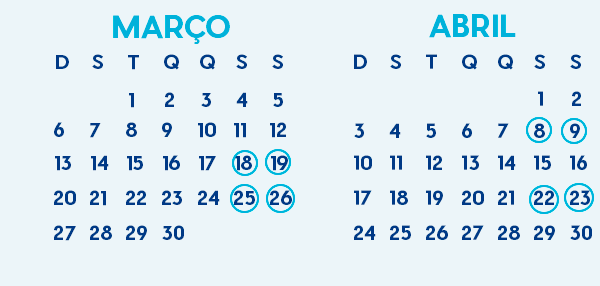
How about trying out being our student? In the IDP Experience, you attend a live Professional Master's in Economics class, free of charge.
FIND OUT MOREIt is the opportunity to study some subjects of our Professional Master's in Economics, having contact with our teachers and methodology. When enrolling in the full course in the future, the subjects can be used!
FIND OUT MOREAn event that promotes the meeting between you, our future student, and our coordinators and teachers, who provide all the details of the course. It's the ideal time to ask all your questions!
FIND OUT MOREThe IDP establishes agreements with foreign universities and institutes to give students the opportunity to experience periods of international studies and research. The agreements signed by IDP allow entry to more than 15 educational institutions in around 6 different countries. Check out some partner institutions and programs carried out!

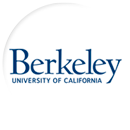

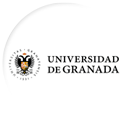

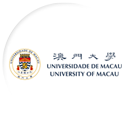

 Reduced Classes
Reduced ClassesReduced classes at all education levels. Greater networking and contact between teachers and students.
 Infrastructure of Excellence
Infrastructure of ExcellenceLarge and modern classrooms, laboratories and study rooms, which facilitate student exchange and learning.
 Focus on the Job Market
Focus on the Job MarketTeaching methodology based on case studies, in which the acquisition of knowledge and skills occurs through the resolution of real problems.

Research is one of the main pillars of the training process of the Professional Master's in Economics at IDP. The PPG invests in qualifying the intellectual production of teachers, students and graduates with a series of initiatives, such as research groups, workshops and direct funding for research.
The IDP Professional Master's Program in Economics has made a positive difference not only in the academic training of its student body, but also in producing actions of impact and innovative character, both in its intellectual production and in the professional performance of the NDP and students and egress. Click and check out actions with social, economic and cultural impact and visibility with the external community.

Created by Prof. Caio Resende, Professor of the Professional Master's Degree in Economics, Open Class consists of offering free mini-courses open to the community in the areas of public administration, communication, law and economics. The courses are taught live, online and with IDP certification. Click and discover the courses with themes related to Economics.
“Espaço Aberto IDP” is a project that launches free and open mini-courses to the public, in the areas of Public Administration, Economics and Law. It is the result of a partnership between the IDP Master's Programs and its main objective is to contribute to the quality of public debate, offering society rigorous technical and scientific knowledge on current topics from the most different areas of knowledge.
ACCESS OPEN SPACE COURSES
The Public Policy Assessment & Innovation Laboratory (LAIPP) is an initiative of the IDP Professional Master's Program in Economics that aims to form a large network of researchers from different institutions in Brazil, building a collaborative environment whose potential impact is to bring public managers the knowledge resulting from innovative experiments published in the most renowned international scientific journals in the areas of public policy. Click and see more.
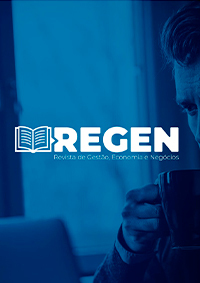
The Journal of Management, Economics and Business - REGEN - is the scientific journal of the School of Management, Economics and Business of the Brazilian Institute of Education, Development and Research - IDP. With a continuous submission process and biannual frequency, it is interested in original articles, in Portuguese and English and that address topics related to management, economics and business.
Last edit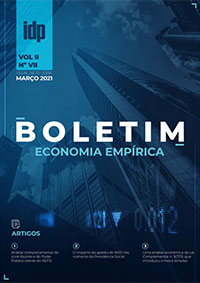
The Empirical Economics Bulletin is the official journal of the Empirical Economics Research Group, linked to the Master's Programs in Economics and Public Administration at IDP. It is published bimonthly containing articles, working papers, essays, discussion texts and lean technical opinions on the various topics that interface with Economic Science. It is interested in unpublished publications and serves as a means of disseminating internal and external scientific production.
Last edit Previous editions